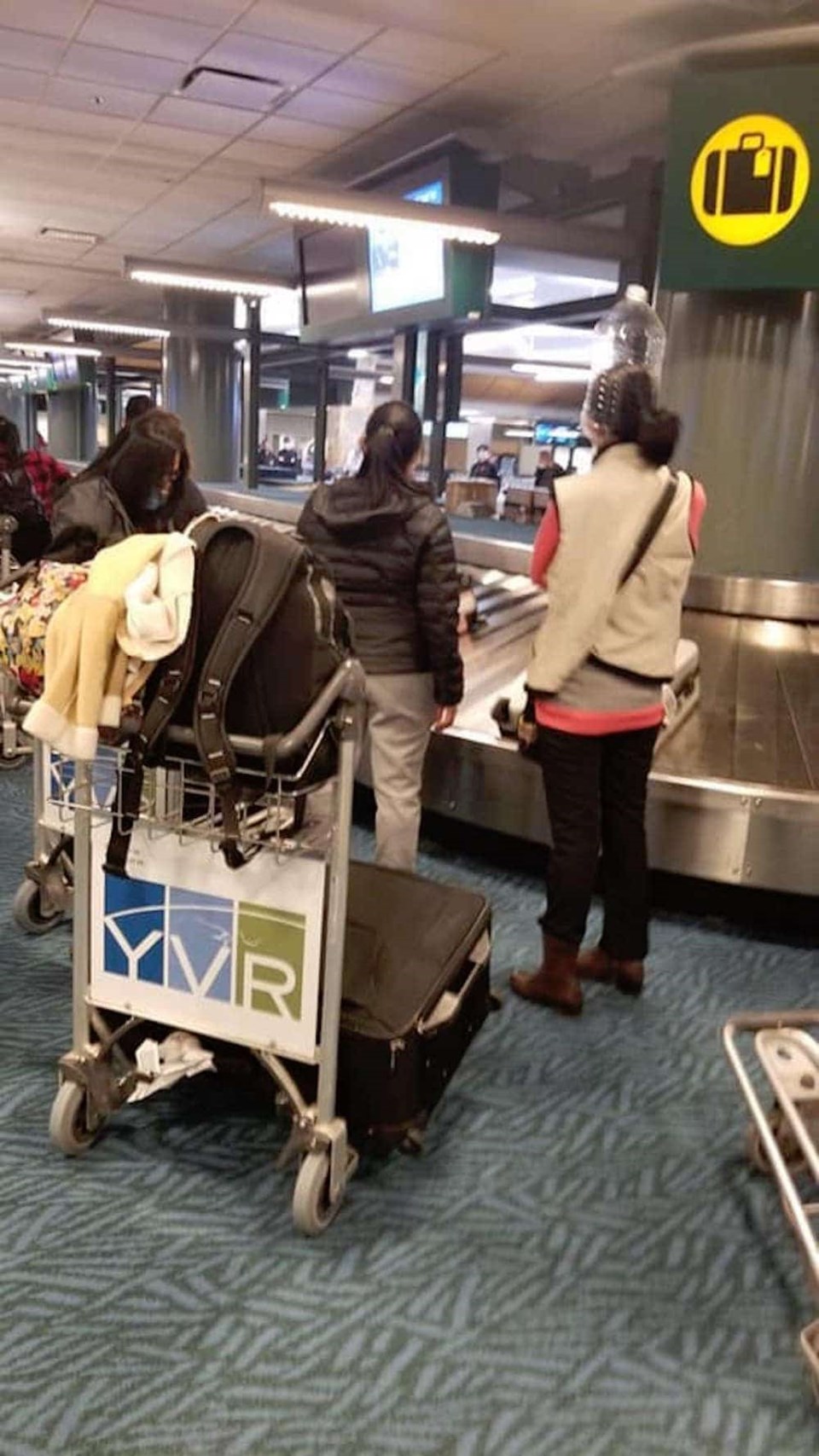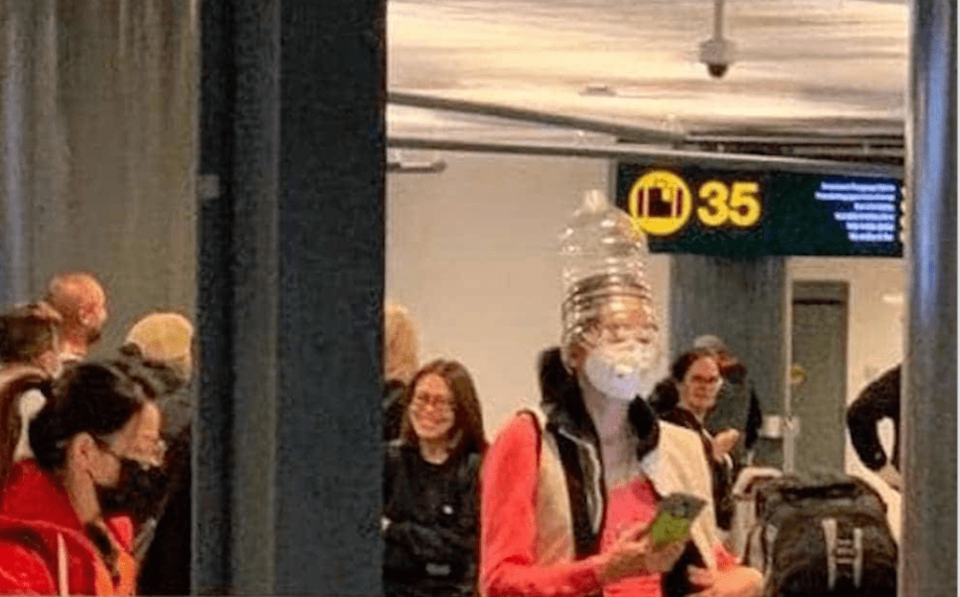While it isn't uncommon to see people wearing face masks during an outbreak, some people take more extreme measures to protect themselves.
Earlier today, Provincial Health Officer Dr. Bonnie Henry confirmed B.C.'s first novel coronavirus case. A man in his 40s who lives in the Â鶹´«Ã½Ó³»Coastal Health region and recently returned from a trip to Wuhan, China.
Despite this, Dr. Henry says the risk of infection of the virus in B.C. is "still extremely low." Nevertheless, some people are still concerned about contracting the virus in the Lower Mainland.
A person was photographed at Â鶹´«Ã½Ó³»International Airport wearing what looks like a plastic container on their head and a mask over their mouth. In an image from the back, it appears that the person has cut a hole into the container in order to make room for their ponytail.
Lynne Carter posted the images to Facebook at roughly 2 p.m. on Jan. 28, captioning, "Fresh out of YVR. The latest anti-virus shields made with old water jugs."
 Photo: Lynne Carter / Facebook
Photo: Lynne Carter / Facebook
 Photo: Lynne Carter / Facebook
Photo: Lynne Carter / Facebook Carter also included a third photo of an adult with a child who are both wearing bottles on their heads. However, the train isn't in Vancouver.
 Photo: Lynne Carter / Facebook
Photo: Lynne Carter / Facebook The Centers for Disease Control and Prevention does not advise wearing containers on your head to prevent a coronavirus infection.
And while there are currently no vaccines available to protect you against human coronavirus infection, the CDC advises that you may be able to reduce your risk of infection by doing the following:
- wash your hands often with soap and water for at least 20 seconds
- avoid touching your eyes, nose, or mouth with unwashed hands
- avoid close contact with people who are sick
The World Health Organization stopped short of calling it a global health emergency last week, while officials here have said Canadians are at low risk of contracting the illness.
Nevertheless, experts stress the need to be vigilant and prepared for signs of infection. If you have mild cold-like symptoms, health officials encourage you to stay home while sick and avoid close contact to help protect others. Cover your mouth and nose with a tissue when you cough or sneeze, and be sure to throw used tissues in the trash and wash your hands. Clean and disinfect objects and surfaces.
Here are some things for people in Canada to know about the coronavirus.
- With files from Nicholas Johansen / Castanet.



